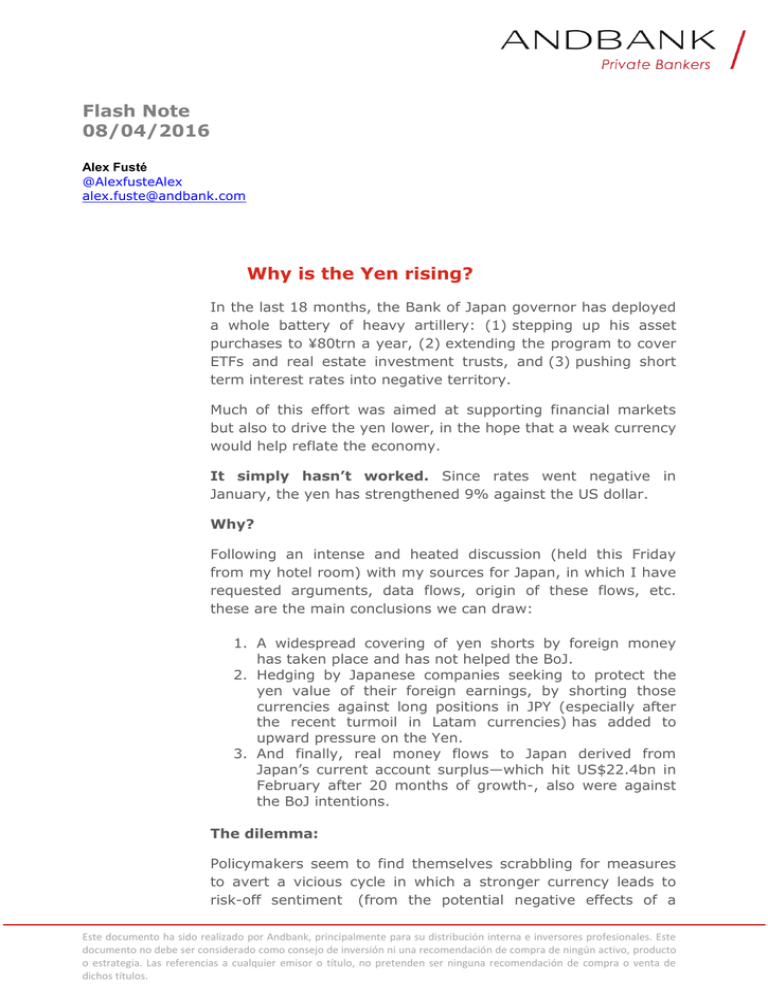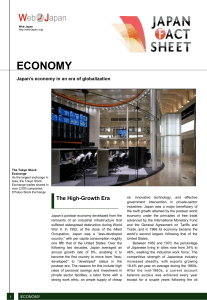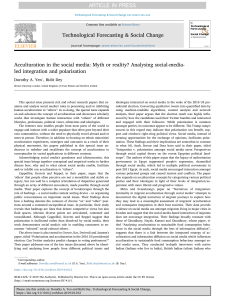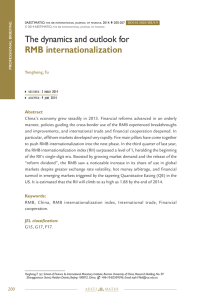Flash Note 08/04/2016 Why is the Yen rising?
Anuncio

Flash Note 08/04/2016 Alex Fusté @AlexfusteAlex [email protected] Why is the Yen rising? In the last 18 months, the Bank of Japan governor has deployed a whole battery of heavy artillery: (1) stepping up his asset purchases to ¥80trn a year, (2) extending the program to cover ETFs and real estate investment trusts, and (3) pushing short term interest rates into negative territory. Much of this effort was aimed at supporting financial markets but also to drive the yen lower, in the hope that a weak currency would help reflate the economy. It simply hasn’t worked. Since rates went negative in January, the yen has strengthened 9% against the US dollar. Why? Following an intense and heated discussion (held this Friday from my hotel room) with my sources for Japan, in which I have requested arguments, data flows, origin of these flows, etc. these are the main conclusions we can draw: 1. A widespread covering of yen shorts by foreign money has taken place and has not helped the BoJ. 2. Hedging by Japanese companies seeking to protect the yen value of their foreign earnings, by shorting those currencies against long positions in JPY (especially after the recent turmoil in Latam currencies) has added to upward pressure on the Yen. 3. And finally, real money flows to Japan derived from Japan’s current account surplus—which hit US$22.4bn in February after 20 months of growth-, also were against the BoJ intentions. The dilemma: Policymakers seem to find themselves scrabbling for measures to avert a vicious cycle in which a stronger currency leads to risk-off sentiment (from the potential negative effects of a Este documento ha sido realizado por Andbank, principalmente para su distribución interna e inversores profesionales. Este documento no debe ser considerado como consejo de inversión ni una recomendación de compra de ningún activo, producto o estrategia. Las referencias a cualquier emisor o título, no pretenden ser ninguna recomendación de compra o venta de dichos títulos. strong Yen in terms of deflation), and that this risk-off prompts investors to buy even more yen as a safe haven, further strengthening the currency. As you can see, an authentic dilemma. If the yen appreciates further towards ¥105 to the US dollar, some possibilities (according to my sources) will be: 1. Direct intervention in the foreign exchange market. 2. More aggressive QE is also possible, with the BoJ stepping up its purchases of domestic equities The question is whether these stimulus will manage to offset the covering of the Yen shorts and hedging by Japanese companies, and eventually drive the Yen lower. I certainly do not know. I guess that in the absence of shocks (oil) and a normalization in EM currencies, covering of Yen shorts and hedging of Japanese companies should ease, removing two key elements supporting the Yen. But of course, I may be wrong. Pending an answer, we should expect equities to continue to trade in inverse relationship with the yen. Greetings from the historical, cheery and friendly land of Leon. Alex Fusté Chief Economist Andbank Este documento ha sido realizado por Andbank, principalmente para su distribución interna e inversores profesionales. Este documento no debe ser considerado como consejo de inversión ni una recomendación de compra de ningún activo, producto o estrategia. Las referencias a cualquier emisor o título, no pretenden ser ninguna recomendación de compra o venta de dichos títulos.



